Filter 795 resources:
- community (216)
- eu (141)
- social media (139)
- media (111)
- trump (94)
- politics (85)
- disinformation (76)
- publicsphere (70)
- news (68)
- democracy (61)
- facebook (61)
- participation (58)
- psychology (55)
- identity (50)
- ai (49)
- comments (44)
- filter bubble (42)
- regulation (39)
- ocm (34)
- us (33)
- brexit (29)
- algorithm (28)
- trust (28)
- authenticity (26)
- communications (26)
- journalism (25)
- brussels bubble (25)
- troll (24)
- propaganda (24)
- us2020 (23)
- covid19 (23)
- policy (23)
- k4p (22)
- science (22)
- ethics (21)
- multilingualism (20)
- evidence-based policy (18)
- content strategy (18)
- populism (17)
- factchecking (16)
- newsletter (16)
- bloggingportal (16)
- influence (16)
- curation (16)
- fascism (16)
- privacy (16)
- groupthink (16)
- polarization (15)
- storytelling (15)
- web20 (15)
- twitter (15)
- engagement (15)
- bluesky (14)
- futurism (14)
- conspiracy (14)
- ai4communities (14)
- censorship (13)
- cognitive (13)
- bloggingportal2 (13)
- fediverse (13)
- blogging (13)
- atprotocol (12)
- knowledge management (12)
- post-truth (12)
- eurosceptic (11)
- egovernment (11)
- innovation (11)
- europe (11)
- science communication (11)
- moderation (11)
- confirmation bias (11)
- tribe (10)
- lobby (10)
- ep (10)
- europcom (10)
- cambridge analytica (10)
- management (10)
- open web (10)
- usa (9)
- bxlsbbl (9)
- bias (9)
- design (9)
- cofoe (9)
- (8)
- advertising (8)
- future (8)
- bbc (8)
- collective intelligence (8)
- event (8)
- longform (8)
- video (8)
- mastodon (7)
- politicoeu (7)
- eurosceptics (7)
- productivity (7)
- blog (7)
- ec (7)
- medium (7)
- election (7)
- science journalism (7)
- domestic (7)
- sovereignty (7)
- llm (7)
- surveillance (7)
- information architecture (7)
- audience research (6)
- bot (6)
- russia (6)
- free speech (6)
- backfire effect (6)
- echo chamber (6)
- culture (6)
- persuasion (6)
- metrics (6)
- platform (6)
- open source (6)
- data (6)
- bullshit (6)
- society (6)
- vote (6)
- strategy (6)
- native advertising (5)
- drupal (5)
- transparency (5)
- ewrc2017 (5)
- promotion (5)
- letters2eu (5)
- data visualisation (5)
- crowdsourcing (5)
- top3pods (5)
- myhub (5)
- anti (5)
- uk (5)
- philosophy (5)
- euro (5)
- qanon (5)
- audiovisual (5)
- copyright (5)
- euractiv (5)
- web design (5)
- yanss (5)
- chatgpt (5)
- education (5)
- google (5)
- digital transformation (5)
- semantic (5)
- creativity (4)
- authoritarianism (4)
- business model (4)
- social marketing (4)
- euroblog (4)
- themes (4)
- marketing (4)
- taxibot (4)
- augmented reality (4)
- content (4)
- game (4)
- linkedin (4)
- gender (4)
- delegitimise (4)
- blockchain (4)
- motivated (4)
- vandenbrande (4)
- data journalism (4)
- china (4)
- media literacy (4)
- english (4)
- leadership (4)
- partisan (4)
- tool (4)
- eurosky (4)
- realtime (4)
- attentionweb (4)
- discourse (4)
- wikipedia (4)
- gdpr (4)
- content marketing (3)
- dissonance (3)
- suppress (3)
- antitrust (3)
- instagram (3)
- conversation (3)
- machine translation (3)
- technology (3)
- semanticweb (3)
- ux (3)
- local (3)
- podcast (3)
- ethereum (3)
- psychometrics (3)
- newsroom (3)
- coral (3)
- mooc (3)
- europa (3)
- guide (3)
- dao (3)
- resilience (3)
- autonomous (3)
- eurocrap (3)
- hate (3)
- jeff jarvis (3)
- hr (3)
- publicsector (3)
- values (3)
- mobocracy (3)
- meme (3)
- outreach (3)
- narratives (3)
- happiness (3)
- atproto adoption (3)
- explainer (3)
- blacksky (2)
- tv (2)
- khub (2)
- disruption (2)
- digital (2)
- syndicated-translation (2)
- bioethics (2)
- comment (2)
- nft (2)
- expert (2)
- adversarial interoperability (2)
- indieweb (2)
- cooperatives (2)
- co-creation (2)
- multisig (2)
- dunning-kruger (2)
- knowledge visualisation (2)
- fear (2)
- internal communications (2)
- behaviour (2)
- lobbying (2)
- government (2)
- reflectivity (2)
- interface (2)
- blogactiv (2)
- emotion (2)
- radio (2)
- automation (2)
- portal (2)
- smartcities (2)
- cultural exchange (2)
- campaign (2)
- framework (2)
- supergirl (2)
- mojo (2)
- interoperability (2)
- twitter migration (2)
- gamification (2)
- web2.0 (2)
- law (2)
- outrage (2)
- longreads (2)
- livestream (2)
- blm (2)
- enewsletter (2)
- facebook live (2)
- interactive (2)
- m365 (2)
- gawker (2)
- infowar (2)
- biology (2)
- consultation (2)
- fblabrats (2)
- computational propaganda (2)
- eci (2)
- italy (2)
- threads (2)
- cory doctorow (2)
- deep fake (2)
- youtube (2)
- substack (2)
- synthesise (2)
- humour (2)
- antivaxxer (2)
- apple (2)
- governance (2)
- collaboration (2)
- river4 (2)
- robert putnam (2)
- amazon (2)
- wiki (2)
- reddit (2)
- research (2)
- expertise (2)
- zettelkasten (2)
- roi (2)
- social capital (2)
- gmo (2)
- nytimes (2)
- web (2)
- unfinished (2)
- globalisation (2)
- sceptic (2)
- climate (2)
- eu09vs19 (2)
- blogtour (2)
- truth (2)
- klout (2)
- religion (2)
- startup (2)
- wisdom (2)
- tools (2)
- city (2)
- organisation (2)
- green (2)
- signal2noise (2)
- ltinnovate2016 (2)
- plato (2)
- usability (2)
- morality (2)
- eesc (2)
- euractiv-com (2)
- scrollytelling (2)
- risk (2)
- cor (2)
- standards (2)
- crowdfunding (2)
- australia (2)
- decentralised (2)
- meaning alignment institute (1)
- gpt-4o (1)
- notebooklm (1)
- anuj ahooja (1)
- new public (1)
- pluriverse (1)
- vsop (1)
- pubhub (1)
- public affairs (1)
- idpi (1)
- model collapse (1)
- talia stroud (1)
- eli pariser (1)
- spotify (1)
- o1 (1)
- consent (1)
- ruben verborgh (1)
- bluesky custom feeds (1)
- rewild (1)
- whitewind (1)
- bryan newbold (1)
- insurrection (1)
- open social (1)
- doge (1)
- atprotocol lexicon (1)
- purity spiral (1)
- mike masnick (1)
- free our feeds (1)
- robin berjon (1)
- cocomo (1)
- at4democracy (1)
- laurens hof (1)
- eurostack (1)
- democracy shield (1)
- alexandra geese (1)
- dsa (1)
- wef (1)
- dries buytaert (1)
- procurement (1)
- permissioned data (1)
- nick gerakines (1)
- change (1)
- virtual reality (1)
- framing (1)
- addiction (1)
- grassroots (1)
- nlp (1)
- cmv (1)
- reality (1)
- warning (1)
- brand (1)
- minimalist (1)
- liberalism (1)
- ngo (1)
- information (1)
- dikw (1)
- stack overflow (1)
- nudge (1)
- infopocalypse (1)
- agile (1)
- inscrutable (1)
- polbot (1)
- machine learning (1)
- metaphor (1)
- sentiment analysis (1)
- wikitribune (1)
- opinion (1)
- gds (1)
- purpose (1)
- design thinking (1)
- software (1)
- big data (1)
- spambot (1)
- optimisation (1)
- debunk (1)
- misinform (1)
- chat (1)
- knowledge illusion (1)
- geopolitics (1)
- power (1)
- personalisation (1)
- opengov (1)
- github (1)
- search (1)
- it (1)
- kek (1)
- overton window (1)
- gtd (1)
- tourism (1)
- hoax (1)
- snapchat (1)
- narcissism (1)
- region (1)
- mindfulness (1)
- stream (1)
- conference (1)
- open data (1)
- online architecture (1)
- buzzfeed (1)
- economy (1)
- complex (1)
- visual (1)
- ideation (1)
- serendipity (1)
- meritocracy (1)
- network theory (1)
- immigration (1)
- blogger (1)
- microsoft (1)
- homophily (1)
- multimedia (1)
- coda (1)
- sponsored content (1)
- paywall (1)
- anger (1)
- altright (1)
- epistocracy (1)
- poetry (1)
- rural (1)
- rationality (1)
- freelancer (1)
- magazine (1)
- prototype (1)
- telegram (1)
- rantic (1)
- slack (1)
- dark pattern (1)
- analytics (1)
- newsfeed (1)
- trade (1)
- technocracy (1)
- democrats (1)
- resources (1)
- liquid democracy (1)
- jelly (1)
- data enrichment (1)
- youth (1)
- medicine (1)
- ft (1)
- bubble (1)
- messaging (1)
- documentary (1)
- useful (1)
- centralised (1)
- membership (1)
- vine (1)
- epsc (1)
- referendum (1)
- cx (1)
- isis (1)
- plagiarism (1)
- quaero (1)
- internet (1)
- terrorism (1)
- agriculture (1)
- inequality (1)
- obama (1)
- essena (1)
- meaning (1)
- seo (1)
- editorial (1)
- keyword (1)
- buffer (1)
- indignation (1)
- slidecast (1)
- seenthis (1)
- egov (1)
- nerd (1)
- #ilooklikeanengineer (1)
- ssi (1)
- network (1)
- economics (1)
- networking (1)
- b2b4me (1)
- nasa (1)
- language (1)
- game theory (1)
- animation (1)
- iot (1)
- ecosystem (1)
- energy (1)
- goals (1)
- photography (1)
- international (1)
- intelligence (1)
- virtual (1)
- cryptocurrency 2.0 (1)
- ello (1)
- bureaucracy (1)
- corporate journalism (1)
- survey (1)
- theme (1)
- evolution (1)
- forum (1)
- archive (1)
- ecas (1)
- register (1)
- screencast (1)
- postmodern (1)
- mindhack (1)
- chinese (1)
- civil rights (1)
- symbols (1)
- germany (1)
- enpi (1)
- ombudsman (1)
- citizenship (1)
- wargame (1)
- faceted search (1)
- kickstarter (1)
- convert (1)
- cro (1)
- votewatch (1)
- mep (1)
- wealth (1)
- cookies (1)
- belgium (1)
- video_conferencing (1)
- social (1)
- employee engagement (1)
- osmo (1)
- broadcast (1)
- language technology (1)
- credibility (1)
- hangout (1)
- ugc (1)
- ep2014 (1)
- stanbol (1)
- apache (1)
- rebut (1)
- meps (1)
- prezi (1)
- 2014 (1)
- videp (1)
- european parliament (1)
- epale (1)
- opencalais (1)
- programme (1)
- scale (1)
- pilot (1)
- roaming (1)
- nhscitizen (1)
- conform (1)
- disgustology (1)
- euelections2019 (1)
- evidence (1)
- adolescence (1)
- migration (1)
- sortition (1)
- spitzenkanditaten (1)
- popvox (1)
- annotate (1)
- euelecitons2019 (1)
- micro.blog (1)
- posse (1)
- bertelsmann (1)
- elaboration (1)
- aspire (1)
- presseurop (1)
- data4policy (1)
- geofence (1)
- pro (1)
- sociology (1)
- blackpr (1)
- balance (1)
- cohesion (1)
- eu2024 (1)
- sapiens (1)
- pluralistic ignorance (1)
- machine text (1)
- apocalypse (1)
- data portability (1)
- philippines (1)
- curiosity (1)
- euvsdisinfo (1)
- wikinews (1)
- scarcity (1)
- rail (1)
- ussr (1)
- bundle (1)
- imposter syndrome (1)
- understanding (1)
- inclusion (1)
- goodwill (1)
- cancel culture (1)
- cui bono (1)
- activitypub (1)
- section230 (1)
- participatory culture (1)
- solid (1)
- freedumb (1)
- gab (1)
- blocklist (1)
- clubhouse (1)
- personal (1)
- deplatform (1)
- mental health (1)
- arg (1)
- floc (1)
- w3c (1)
- metaverse (1)
- label (1)
- presidency (1)
- cozyweb (1)
- reflections (1)
- social-media (1)
- publicsectorinformation (1)
- cluetrain (1)
- programmes (1)
- rebuttal (1)
- lisp (1)
- yellow-card (1)
- eurosplinternet (1)
- life-in-belgium (1)
- hungarian (1)
- accreditation (1)
- infosociety (1)
- eparticipation (1)
- learning (1)
- monitoring (1)
- integrate (1)
- collaborate (1)
- justice-home-affairs (1)
- ostrom (1)
- web3 (1)
- wallet (1)
- snapshot (1)
- d2d (1)
- elon musk (1)
- note (1)
- procrastination (1)
- 3p framework (1)
- d3 (1)
- subconscious (1)
- fotl (1)
- betaworx (1)
- conference report (1)
- gordon brander (1)
- pattern language (1)
- plexus (1)
- intimacy (1)
- canonical debate lab (1)
- massive.wiki (1)
- harvest (1)
- autosummarise (1)
- data union (1)
- disco (1)
- stochastic parrot (1)
- christopher manning (1)
- emily m bender (1)
- bloom (1)
- agent (1)
- meta (1)
- safety (1)
- evgeny morozov (1)
- agi (1)
- quit (1)
- douglas rushkoff (1)
- experiment (1)
- joan westenberg (1)
Relevant Overviews
- Bluesky and the ATmosphere
- Communication Strategy
- Content Strategy
- Knowledge4Policy
- Fediverse
- Online Strategy
- Online Community Management
- Social Media Strategy
- Content Creation & Marketing
- Online Architecture
- Digital Transformation
- Personal Productivity
- Innovation Strategy
- Surveillance Capitalism, Social media and Polarisation (Overview)
- Communications Tactics
- Psychology
- Social Web
- Media
- Politics
- Communications Strategy
- Science&Technology
- Business
- Large language models
Overview: Politics
Relevant resources
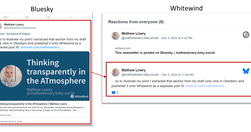
If, like many, you think Bluesky is "Twitter, but with less Nazis", this post is for you.
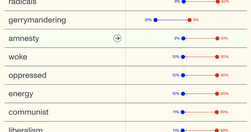
"Could seeing how opposite sides of the US political spectrum use the same words differently be a first step toward greater cross-political understanding?... What if generative AI could help us understand people with opposing views better just by showing how they use common words and phrases differently?"MIT's Bridging Dictionary (BD) research …
"Blacksky Algorithms, the team behind Blacksky and rsky, is now officially Blacksky Algorithms Inc", a Delaware C-Corp with its own fiscal host, and bigger ambitions."Blacksky will continue to rely on voluntary, member-supported subscriptions while also building and hosting technical infrastructure for developers, communities, and teams".Short-ter…

From 2018, a good history, but no solutions: "Facebook didn’t invent the feature, but they definitely broke it. How can we better regulate future disruptive ideas?".Brief historyPart of the A Brief History of Attention series, starts with some brief history, culminating with Zuckerberg combining "three core concepts — the social graph, the news fe…
"misinformation is powerful, not because it changes minds, but because it allows people to maintain their beliefs in light of growing evidence to the contrary. The internet ... as a justification machine".Humans are "evidence foragers ... historically [that's] meant digging into a subject, testing arguments... That was the foundation on which most…

"The internet has become an extractive and fragile monoculture. But we can revitalize it using lessons learned by ecologists."Establishes the metaphor with a story about “scientific forestry” - the late 18th century growth hacking technique that "made timber yields easier to count, predict and harvest, and meant owners no longer relied on skilled …
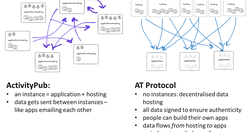
My mid November 2024 newsletter summarises how a deep dive into Bluesky has changed how I view #AI4Communities, and summarises some of the most influential things I've read recently.
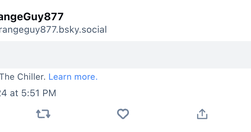
Bluesky's announcement of their open-sourcing of "Ozone, our collaborative moderation tool... individuals and teams can work together to review and label content", coupled with the ability for people and communities to "run your own independent moderation services, seamlessly integrated into the Bluesky app".This enables "an ecosystem of moderatio…
According to Mark Zuckerberg, "Consumers no longer control their social-media feeds. Meta’s algorithm... is showing users “a lot of stuff” not posted by people they had connected with... future feeds [will] show you “content that’s generated by an A.I. system.”" Fortunately, "Our legal system is starting to recognize this shift and hold tech giant…
"I rarely work for the same client for more than a year or two - generally enough to help them figure out their strategy, pilot and demonstrate it, and set up the team to mainstream it. But I make an exception for the Joint Research Centre"A few slides, repurposed for LinkedIn, setting out "some of the key innovations underpinning the Knowledge4Po…

"Only people can trust, but only machines scale well. Today’s websites and apps are built to compensate for an absence of trust, rather than to support its growth."Instead we have the 'I accept' button: "we know we are lying the moment we touch it, as does the author of the legalese no one expects anyone to read. Navigating a trustless world is a …
Classic example of a negative view on LinkedIn: "Unlike many others, I don’t think any reinforcement learning or reward algorithm is at play... appears to be a generic Chain-of-Thought (CoT) process that breaks tasks into several steps... Subsequent steps ... generated based on context... subsequent interactions concatenated into the context... fe…
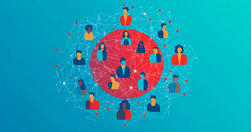
"The most common AI-based functionalities in participation tools are toxicity screening, analysis of inputs and translation. The first two in particular are meant to lighten the workload" of community managers."Toxicity screening ... is used to flag hateful or inappropriate inputs." Text is usually flagged and post-moderated, but images are blocke…
"As AI-generated content blurs the line between human and machine online, “model collapse” might help us find new value in well-managed human communities."

An interesting take: governments should ensure "that news outlets, digital platforms, and political leaders provide the best available knowledge" and enshrine a new to not "be lied to by the powerful" in a world optimised for enragement: "one study showing that each additional negative word in a headline increased the click-through rate by 2.3%".O…
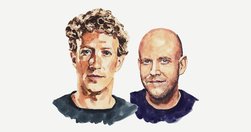
The EU "risks falling behind because of incoherent and complex regulation", but there's an opportunity: "open-source AI—models whose weights are released publicly with a permissive licence... ensures power isn’t concentrated among a few large players... creates a level playing field".Europe has more open-source developers than America and so is w…
Good piece on how "the free speech warriors... [behind] Truth Social and the ... decay of Twitter ... the “Festung” cities of unrestricted expression... still not happy... shouting into an echo chamber isn’t nearly as satisfying as they thought it would be... What they’re really after ... is our attention... The thrill of provocation quickly fade…

Profile of New_Public, founded by Eli Pariser of Filter Bubble and Upworthy fame, and Deepti Doshi "from from Meta, where she’d spent much of her tenure leading the company’s Community Partnerships... supporting, Facebook group admins... as well as UT Austin professor Talia Stroud, who remains on the board, and their drive to stimulate "citizen-dr…
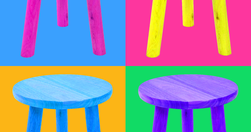
The Initiative for Digital Public Infrastructure's manifesto sets out the three legs upon which an open public sphere must rest.
Michael Foster's "top ten unfinished building blocks" are:trust & safety: "heart of an ethical social web... [currently] delegated to a small group of volunteers... [but] green shoots emerging"spam filters: "there are some amazing tools now... Pixelfed has shown what can be done"safe spaces / bridging & federation: 2 closely linked challenges whic…
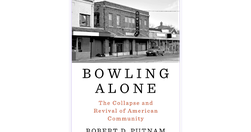
"A deep dive into Robert Putnam's Bowling Alone", over 20 years later, by "former New_ Public Research Fellow Serena Chao".Social capital, according to Putnam, "is the “connections among individuals — social networks and the norms of reciprocity and trustworthiness that arise from them”... [making] a strong case for a correlation between thriving,…

Anuj Ahooja asks, on Threads' first birthday, the "existential question... Why does Threads exist? ... an alternative to Elon Musk's X. But ... a platform can't exist to be "an alternative." It should be able to stand alone with its unique purpose and be built to incentivize users to follow that purpose... [unfortunately] the humans who have worke…

"GPT-4o ... talk to users in a much more lifelike way — detecting emotions in their voices, analyzing their facial expressions and changing its own tone and cadence depending on what a user wants... It sounded more humanlike than some humans I know."And it's fast: it's “native multimodal support” means it can "take in audio prompts and analyze th…
Interesting ideas but innocent of how they could create as much harm as good."The internet caters to our baser interests... like wanting to be healthy, but finding yourself in a food court where the only options are burgers and milkshakes. What option do we have but to be our baser selves?... But what if we created an arena of virtue ... would hu…
"Could AI itself be used to imagine and build new institutions, so we can better collaborate, govern, and live together?... hope to inspire and engage researchers and practitioners to build AI that improves our societal institutions."The site includes 8 (so far) “Project Cards that showcase ideas for projects that have come out of our workshops...…

At an AI conference, Jeff Jarvis "knew I was in the right place when I heard AGI brought up and quickly dismissed... I call bullshit... large language models might prove to be a parlor trick". The rest of the conference focused on "frameworks for discussion of responsible use of AI".Benefits - for some, AI can:"raise the floor...scale ... enabling…
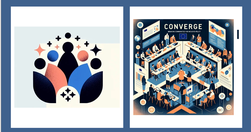
Earlier this week I used an excerpt from a chat with Philip Weiss & Jesús Azogue as a starting point for a conversation with ChatGPT about some of the content in my Hub.
"Transformation Maps... help users to explore and make sense of the complex and interlinked forces ...transforming economies, industries and global issues... insights written by experts along with machine-curated content... allows users to visualise and understand more than 250 topics and the connections and inter-dependencies between them... to s…
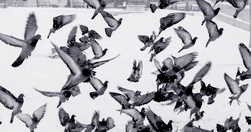
One of my favourite writers/thinkers on all things digital future is "finally, definitely, fully leaving X, and probably all social media..."
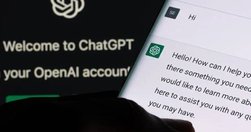
Asks: could LLMs be used to "create tools that sift and summarize scientific evidence for policymaking... [for] knowledge brokers providing presidents, prime ministers, civil servants and politicians with up-to-date information on how science and technology intersects with societal issues... [who must] nimbly navigate ... millions of scientific pa…
Loading more...
Relevant Overviews
- Bluesky and the ATmosphere
- Communication Strategy
- Content Strategy
- Knowledge4Policy
- Fediverse
- Online Strategy
- Online Community Management
- Social Media Strategy
- Content Creation & Marketing
- Online Architecture
- Digital Transformation
- Personal Productivity
- Innovation Strategy
- Surveillance Capitalism, Social media and Polarisation (Overview)
- Communications Tactics
- Psychology
- Social Web
- Media
- Politics
- Communications Strategy
- Science&Technology
- Business
- Large language models